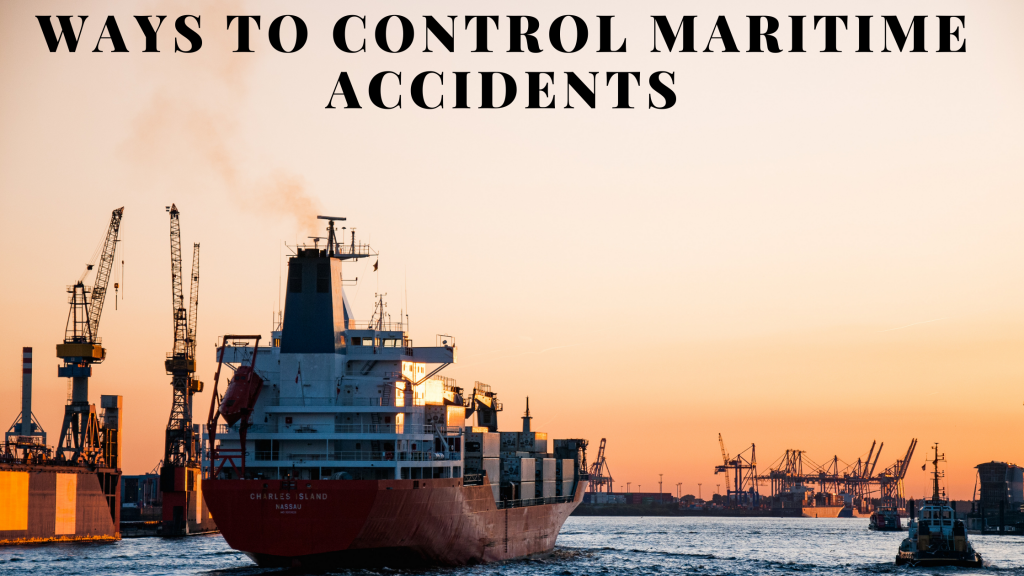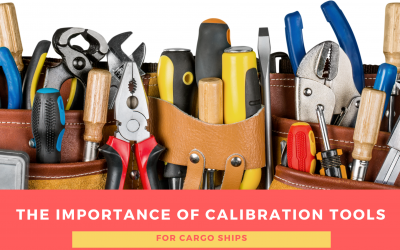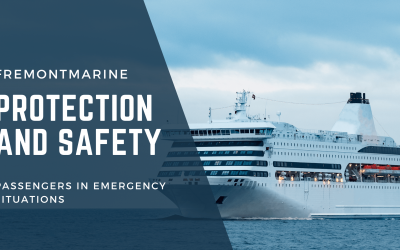5 Ways to Control Maritime Accidents
There are many ways to control maritime accidents as we occasionally hear news or two about ship accidents. The concerned bodies need to take relative actions and acquire a proper decision-making team to control maritime accidents. Unfortunately, the methodology on which the vessels, ships, or boats work, in some countries, is obsolete and weak. Primitive ways of shipping are practiced in many underdeveloped countries which do not follow the current standards and techniques set by major shipping firms.
1. Causes of Maritime Accidents
The main cause of such accidents is the continued ignorance of adapting to the newest technologies and methods of traveling into the waters. Therefore, to control maritime accidents, we need to take serious action. Ignorance of the preventive measures leads to mishaps and blunders of the highest order. Following are a few causes of such accidents:
1.1 Long Distances
Due to long-distance traveling, crew members can become exhausted, and fatigue takes over them. With such a health condition, they are unable to cope with the hardships of ocean waters. As a result, the crew members, in stress and exhaustion, can produce blunders. These blunders lead to further misfortunes if not dealt with properly. As a result, the passengers become prey to the violence of the oceans.
1.2 Lack of Training Causes Maritime Accidents
With an unskilled staff, the chances of these accidents increase exponentially. Proper training services, therefore, must be available for the crew members to ensure complete safety. The crew members require fire fighting techniques for emergencies. Not just fire fighting techniques, ship handling skills should also be present in them. To prevent maritime accidents, the crew always needs to be proactive and sharp-minded.
1.3 Equipment Failure
A shipowner needs to carry out a complete checkup of the ship/ vessel before leaving the shores. The crew should follow proper oil checking, cargo setting, equipment evaluation, and all other standards. The concerned tools, wrenches, ropes, and all the necessary items required must be present before getting on board. This shortcoming is fulfilled through the use of marine services, that help control maritime accidents.
1.4 Reckless Behavior
All sorts of reckless behavior should not be there on a long-distance voyage. Risking lives and moving from a risky route come into the category of reckless behavior. Steering the ship into a trouble-creating scenario is not the solution and, most of the time can lead to a huge mishap. Solving this issue helps control maritime accidents.
1.5 Explosions
The oceanic waters can be deadly, yet the vessels in which the cargo and crew members travel or a passenger ship can, at times, be deadly itself too. Whether from the bursting of gas cylinders or a faulty engine, the explosions inside a ship prove deadly. Such maritime accidents tend to damage the cargo completely, therefore different methods should be adopted to control maritime accidents. The loss of life can also be in great numbers if such accidents are not prevented.
1.6 Navigational Failures
A loss of track is a sign of danger for any moving object, especially in two modes of transport like planes and ships. Therefore, a proper understanding of maps and navigational systems is necessary. Many maritime accidents take place due to the unresponsive behavior of the captains while steering. They, at times, forget the right route and put people’s lives in danger. The captains should seek help from the radar team rather than behave selfishly and risk going into unknown regions to reach the destination.
1.7 Colliding with Other Movable or Immovable Objects
Another major cause of maritime accidents, as shown in the famous “Titanic” movie, is the crew and the captain’s irresponsible behavior in identifying the hidden icebergs under the ocean. Such icebergs can easily be tracked with the help of radars, which at times, are untrackable. This results in causing major problems ahead and leads to major maritime accidents. To control maritime accidents, the captain and the crew must remain vigilant.
1.8 Fire Eruptions
In many maritime accidents, fire eruption is also a cause. Such eruptions can occur because of the fault engine, flammable cargo, or even through improper use of the kitchen equipment. These fire eruptions cause a lot of damage to the vessels/ ships. They are a major cause of the destruction of ships in the middle of the sea. People involved in such accidents suffer greatly. These issues are solvable after learning the ways to control maritime accidents are necessary
2. How can Maritime Accidents be Prevented?
As we have seen in how many maritime accidents occur, now we will see the preventive measures and actions taken by the crew and the captain to ensure safety. The ignorance of the crew and the captain should not be there while carrying out any troubleshooting. Here are the 5 ways that can control maritime accidents:
2.1 Staying Alert Helps to Control Maritime Accidents
The captain, along with the crew, should always stay alert. Staying alert will help them in handling the moving object very nicely and eventually control maritime accidents. The chances of hitting another ship, an iceberg, or any other hidden rock will gradually decrease. Staying alert leads to a better risk management system, leading to the creation of a phenomenal team.
2.2 Staying Visible
Most of the time, the crew of the ships forgets to do the regular maintenance. The navigational lights and other devices to show visibility must be properly maintained or looked after before leaving the shores. The vessels or ships not following the above visibility precaution are highly likely to be accidental. Many maritime accidents occur because of the lack of using this technique.
2.3 Keep Watch is a Way to Control Maritime Accidents
Staying proactive and watching out for the moving or stable objects leads to an amazing and safe journey. Rarely, the crew members lookout for other nearby objects during the nighttime. When in the dark, the crew needs to be searching for any nearby objects that could provide danger and inform the captain. This act helps control maritime accidents.
2.4 Proper Usage of Radio
Radio signals are a medium of communication on a ship. The possible dangers and disasters are solvable through the proper execution of these signals. The captain generally communicates with the staff back at the shores. The staff then guides the captain on what to do through these signals. However, not following radio signals and radar technology procedures, the ship becomes vulnerable to the deadly ocean. therefore, proper usage of radio is necessary to control maritime accidents.
2.5 Carrying the Required Devices and Gadgets.
The staff should, at all times, keep with them the required gadgets and devices to ensure overall safety. These gadgets include binoculars to keep watch, radar devices to keep track, igniting equipment to be visible, and even whistles to mention to others about your presence if a proper vision is not available. Such devices and gadgets ensure complete safety from maritime accidents.
Our emergency team makes sure to provide the best marine services. Life jackets, immersion suits, and chemical suits are also provided to keep the process smooth.
Further services include:
Lifeboat Services
Inflatable Liferafts
Load Testing Service
Calibration Services
Safety Equipment Supply
Fire Fighting Appliances.


